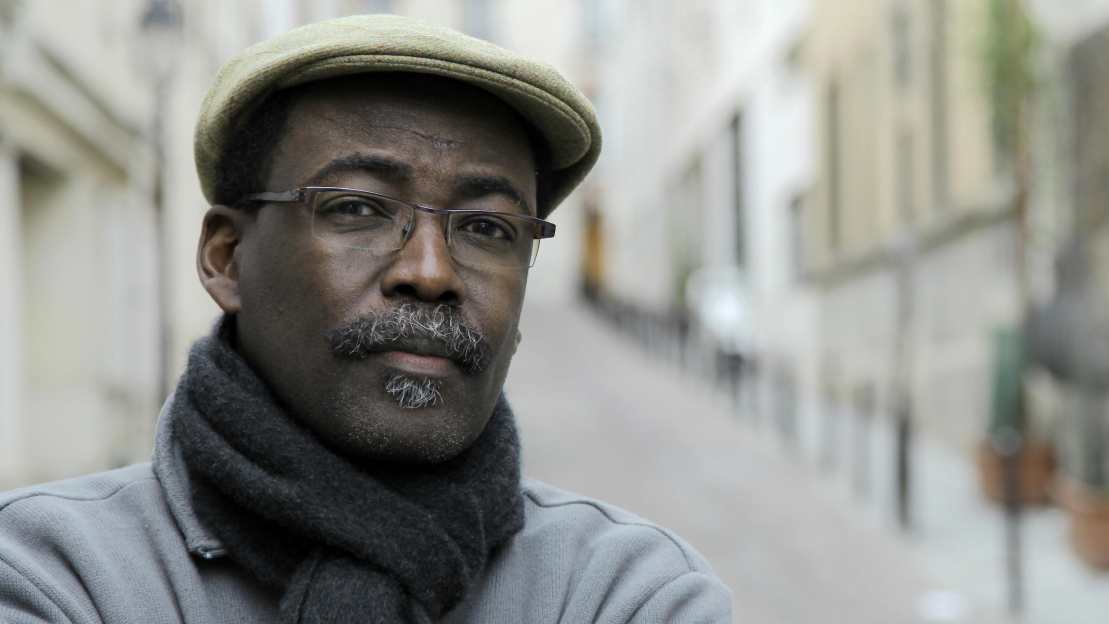Mahamat-Saleh Haroun brings Black and African representation to Western cinema alongside French directors Mati Diop and Ladj Ly. Haroun is Chad’s first full-length film director. He is also the first from the country to enter and win a main award at the Cannes International Film Festival.
His latest feature film, Lingui, The Sacred Bonds is the fourth to have its premiere at Cannes and the second to be nominated for the coveted Palme d’Or.
“The Cannes Film Festival seen from Chad is an unclimbable mountain, and to be at the top of this mountain is simple a joy for 15 million Chadians,” Haroun shared in an interview.
“African cinema is invisible. It’s very important for us just to be there, to be seen,” he said.
Mahamat-Saleh Haroun: the first major filmmaker from Chad
Haroun directed his first short film Tan Koul in 1991. He gained recognition following his second short film Maral Tanie (1994). Later he would direct Goi-Goi (1995), B 400 (1997), and Letter from New York City (2001).
Haroun wrote, directed, and starred in first feature film Bye Bye Africa in 1999. Bye Bye Africa follows a Chadian film director who returns to his native country. The film is celebrated as being the first Chadian feature. He created seven more feature-length films after that, including Lingui.
A Screaming Man (2010) won the Jury Prize at Cannes. It also won the Robert-Bresson Prize for films that communicate difficult messages at the Venice International Film Festival. The film explores the separation of a father and son during the Chadian civil wars.
Grigris (2013) was also nominated at Cannes for the Palme d’Or. The film depicts a disabled Chadian young man who gets roped into gasoline trafficking while dreaming of becoming a dancer.
The filmmaker also brings to the screen with the four documentaries he made over the course of his career. In 2017, he published his first novel. Djibril ou les Ombres portées (Djibril or the Shadows) debuted through leading French book publisher Gallimard.
Mahamat-Saleh Haroun films Chadian stories
Haroun was born in Abéché, Chad in 1961. He left for France in 1982 during Chad’s civil wars that spanned most of the decade.
The director and writer studied film in Paris at the Conservatoire Libre du Cinéma. He went on to study journalism at the University of Bordeaux Institute of Technology. Haroun worked for the press and in radio for several years before directing his first films.
Though living in France for most of his life, Haroun places most of his films in Chad. “I was born there. I spent my childhood there,” he said. “Part of my memory is based in Chad, so I’m always coming back and telling these stories.”
“The most important thing is just to tell universal stories, talking about man and woman everywhere,” Haroun shares. “My country is cinema. I don’t belong to Chad. I belong to cinema.”
“Lingui” highlights abortion taboo in Chad
The film takes place in the outskirts of N’Djamena, Chad, telling the story of Amina, a 30-year-old mother and her 15-year-old daughter Maria. A practicing Muslim, Amina must confront her teenage daughter’s pregnancy and desire to have an abortion. Both Anima and Maria must face the fact that abortion is looked down upon in Islam and illegal in Chad.

A still from “Lingui”, dir. Mahamat Saleh Haroun
Lingui, The Sacred Bonds is Haroun’s first film starring female leads. “Feminism in Chad is about changing things,” says Haroun about the film’s message. “The feminist revolution is coming, and it will happen, because women are the majority in Chad. And because men too often forget that they come from women.”
“It’s a Chadian word that means a bond or connection,” Haroun explained about the film’s title. “More generally it’s what links people in order for them to live together. I can only exist because others exist, that is lingui, that is the common thread, the sacred bond of our social fabric.”
“The women use that to support each other,” he said. “That’s how they continue to resist.”
Following Lingui, The Sacred Bonds’ festival premiere, global streaming platform and production company MUBI picked up the film’s distribution rights for the US, UK, Latin America, Ireland, and Turkey.
Watch a clip of Lingui, The Sacred Bonds here.



